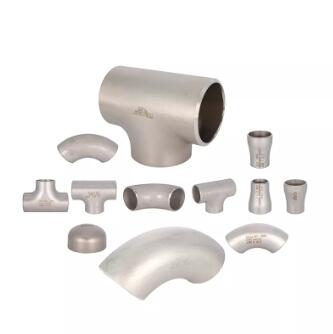Understanding Stainless Steel Socket Pipe Fittings: An Essential Component in Industrial Piping Systems
2024-08-22
In the world of industrial piping systems, stainless steel socket pipe fittings are crucial components that ensure secure and leak-proof connections. These fittings are widely used in various industries, including oil and gas, chemical processing, water treatment, and food and beverage production. In this blog, we'll explore what stainless steel socket pipe fittings are, their types, and why they are preferred in demanding applications.
What Are Stainless Steel Socket Pipe Fittings?
Stainless steel socket pipe fittings are connectors used to join sections of pipes or tubes together. They feature a socket or female end where the pipe or tube is inserted, creating a strong and sealed joint. Stainless steel, known for its excellent corrosion resistance, high strength, and durability, is the material of choice for these fittings, making them ideal for applications that involve harsh environments or require long-term reliability.
Types of Stainless Steel Socket Pipe Fittings
1. Socket Weld Fittings: These are used for small-diameter, high-pressure pipes. The pipe is inserted into the socket and welded, creating a strong and permanent joint. Common types include elbows, tees, couplings, and caps.
2. Threaded Socket Fittings: These fittings have internal threads that allow the pipe to be screwed into the fitting. This type of connection is often used for lower-pressure applications and is easier to assemble and disassemble compared to welded joints.
3. Reducing Socket Fittings: These fittings are used to connect pipes of different diameters. They are available in both threaded and socket weld varieties and are essential for creating seamless transitions between different pipe sizes.
Advantages of Using Stainless Steel Socket Pipe Fittings
1. Corrosion Resistance: Stainless steel is inherently resistant to corrosion, making these fittings ideal for use in environments where exposure to moisture, chemicals, or high temperatures is common.
2. Durability: Stainless steel fittings are highly durable and can withstand extreme pressures and temperatures without deforming or failing.
3. Hygienic Properties: In industries like food and beverage or pharmaceuticals, where hygiene is critical, stainless steel fittings are preferred due to their smooth surfaces and resistance to bacterial growth.
4. Ease of Installation: Socket fittings, particularly threaded ones, are relatively easy to install and can be disassembled for maintenance or repairs, reducing downtime.
Applications of Stainless Steel Socket Pipe Fittings
Stainless steel socket pipe fittings are used in a wide range of applications, including:
- Oil and Gas: For transporting crude oil, natural gas, and refined products under high pressure and extreme conditions.
- Chemical Processing: Where the fittings must resist aggressive chemicals and corrosive environments.
- Water Treatment: In systems that require corrosion resistance and long-lasting performance.
- Food and Beverage: In sanitary piping systems that demand clean, non-reactive materials.
Conclusion
Stainless steel socket pipe fittings are indispensable in many industries due to their robust performance, corrosion resistance, and ease of use. Whether you're dealing with high-pressure applications or need a reliable and hygienic solution, these fittings offer the durability and reliability needed to keep your operations running smoothly.



